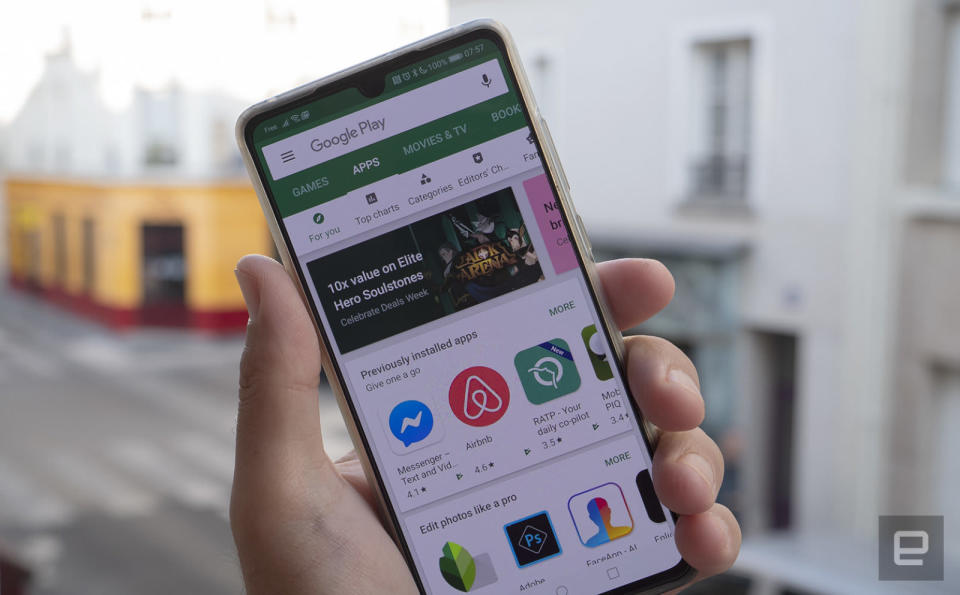Google is cracking down on apps with 'disruptive' ads
It removed nearly 600 apps that had been installed more than 4.5 billion times.
Google's Play Store is a pretty open platform. While that can be a good thing for users and app developers, some bad actors can take advantage, either through malware or obnoxious ads. Today, the company announced that it has removed nearly 600 apps from the Play Store -- and has banned them from its ad monetization platforms -- because they repeatedly violated Google's disruptive ads policy. Unfortunately, those apps have already been installed over 4.5 billion times, according to BuzzFeed News.
Google defines disruptive ads as ones that either interfere with device usability or display when the user isn't actively using the app. For example, an app could serve a full-screen ad when a user unlocks their phone to make a call. These popups affect more than just users -- advertisers end up paying for inadvertent clicks, which wastes their budgets. (Google will refund advertisers who were impacted by the removed apps.)
Google says that it used a new machine learning algorithm to detect when apps violated the disruptive ad policy. This helped the company hone in on which apps to analyze -- and to determine if developers and publishers were repeat offenders. "We give [developers and publishers] a notice and a warning [the first time a violation is detected] and allow them to correct the problem," Per Bjorke, Google's senior product manager for ad traffic quality said to BuzzFeed News. "And if it's a repeat offense, then it will gradually be a stronger reaction." As an example, Cheetah Mobile -- which has been in hot water before -- has finally been banned from the Play Store and all of its apps have been removed.
It's encouraging to see that Google is making some efforts toward improving the Play Store experience. Hopefully this new machine learning strategy will help stop malicious and disruptive apps before a lot of people install them.



